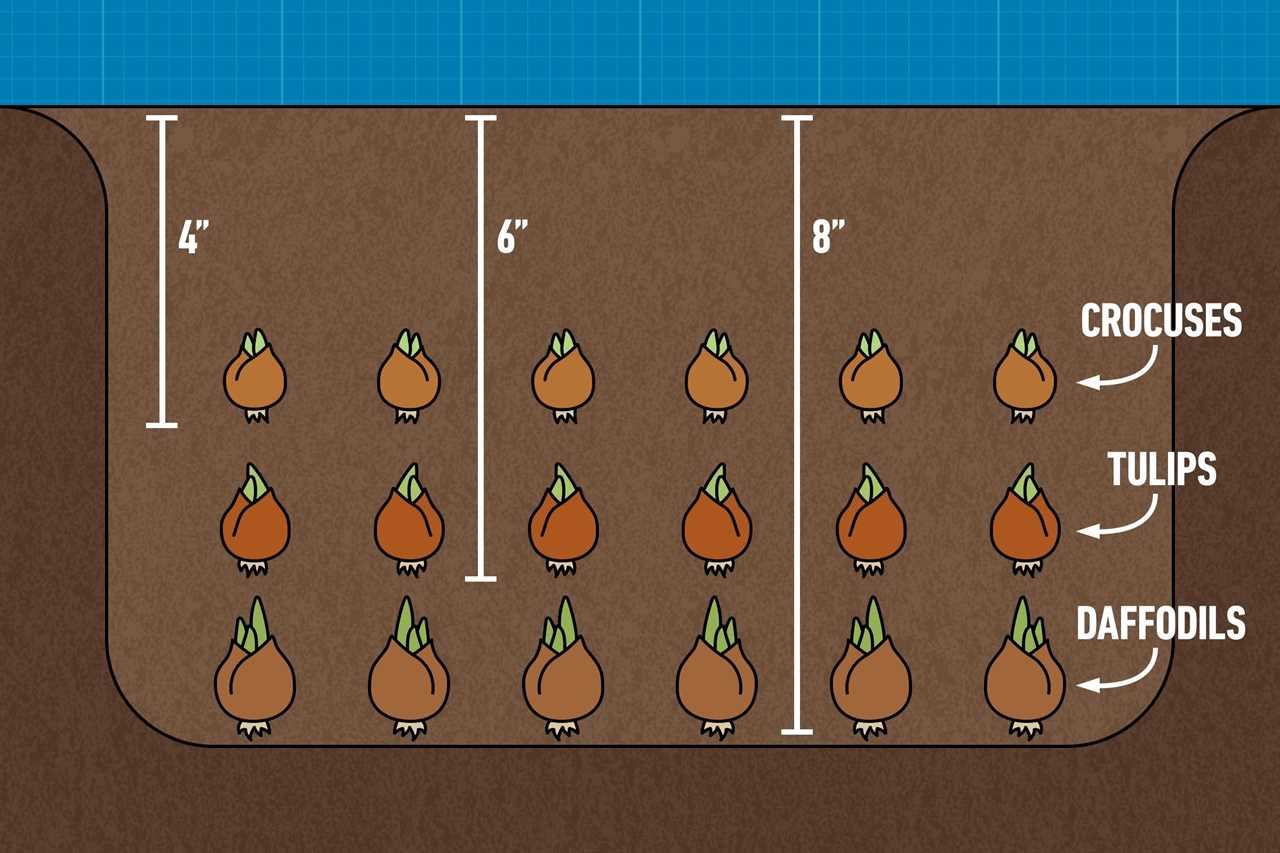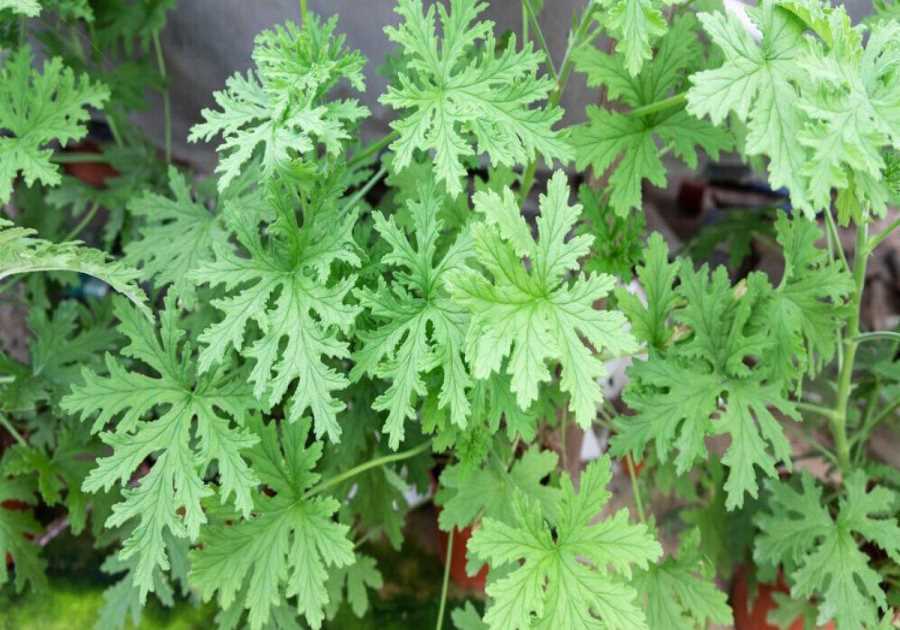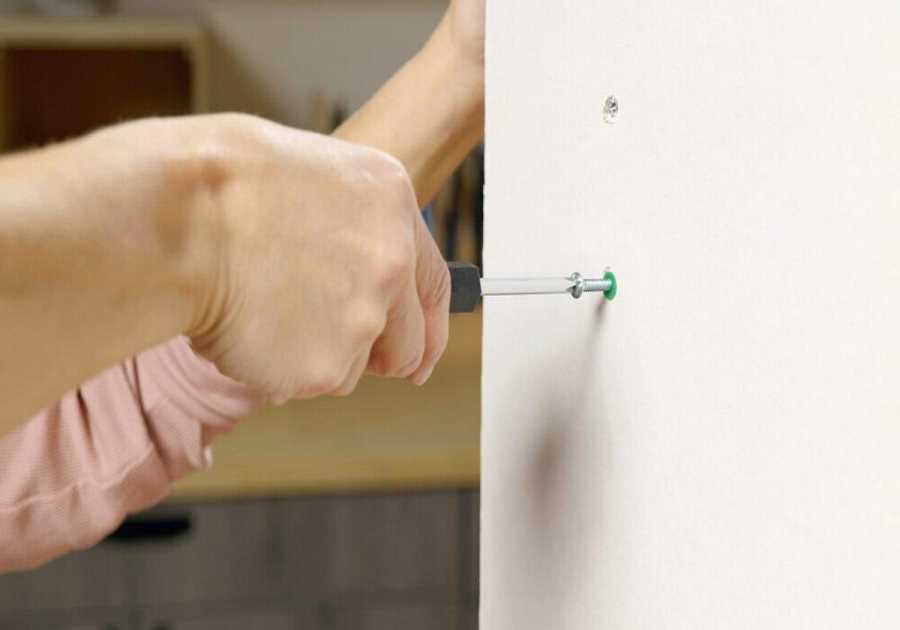There’s a spot in my garden where crocuses come up, followed by daffodils, then tulips. Each one shows off their blooms, but they all share the same space.
How did I do that? It’s called lasagna planting. Read on to learn more about this technique.
What Is Lasagna Planting?
It’s a method of planting flower bulbs of various types in one location so you get a succession of blooms throughout the spring in that one area.
Just like you make lasagna by layering the pasta, cheese and sauce in the pan, lasagna planting involves planting in layers, usually based on size. The larger bulbs go deeper in the hole, and smaller bulbs near the top. I’ve used this method in my flower garden, but it also works great if you plant your bulbs in containers.

Lasagna Planting vs. Lasagna Gardening
Lasagna planting and lasagna gardening are based on the same layering concept. The difference? Lasagna planting involves putting bulbs together in the same hole or container. Lasagna gardening means layering different organic materials to make a planting bed, usually without digging.
Does Lasagna Planting Work?
Absolutely! But it requires planning to come up with a good mix of bulbs that will grow well together when planted at different depths with different bloom times.
Lasagna Planting How-To
Planting bulbs with the lasagna method is just as easy as planting other bulbs. It might even be easier because you’re digging only one big hole. Here’s how to do it:
- Dig a hole as deep as the biggest bulbs require and wide enough to place all the bulbs needed in each layer. Set the soil you dug out aside to backfill later.
- Place the biggest bulbs in the hole and cover completely.
- Layer in the next biggest bulbs and cover them completely.
- Repeat for as many layers as you have. Most gardeners stick with three or four layers.
- Mulch the area where you’ve planted. A few inches is enough.
Now you just wait for spring, when the bulbs will come up and bloom in succession, starting with those at the top of the hole and ending with those at the bottom. Some flowers may even bloom at the same time depending on the varieties you’ve chosen.
Best Flowers for Lasagna Planting
The best flowers are the bulbs we plant in the fall for spring flowers, although you can add in a few that bloom in summer or fall.
When choosing what to plant, consider bloom time and bulb size. A classic mix for lasagna planting might include:
- A bottom layer of big daffodil bulbs planted about eight inches deep. Daffodils come in several sizes and blooms are mostly yellow, but many varieties also feature white or peach-colored petals. They’re mostly hardy in U.S. Department of Agriculture Plant Hardiness Zones 3 through 7.
- A middle layer of tulips planted five to six inches deep. Tulips come in almost every color, especially hybrids, commonly found at garden centers in the fall. Check the label to find out if it is an early, mid-season or late-blooming variety. Tulips are also hardy in Zones 3 through 7.
- A top layer of crocuses planted four inches deep. Crocuses are hardy in Zones 4 through 8 and are often the first flowers to bloom in spring.
Other options include:
- Hyacinths, hardy in Zones 4 through 8. Plant about six inches deep.
- Grape hyacinths, Muscari sp., can be planted about five inches deep. They’re hardy in Zones 4 through 8
- Alliums, also called ornamental onions, bloom later than many spring-flowering bulbs, making them a good final flourish. Most are hardy in Zones 5 through 7.
What To Do After All the Lasagna-Planted Flowers Bloom
Once your flowers finish blooming, remove the spent blooms but leave the foliage and cut it back once it’s brown. While the foliage is growing, the bulbs below ground are bulking up to ensure a good flower display the following spring.
If your lasagna planting looks bare after everything has flowered, carefully slip in a few small varieties of annuals like marigolds or zinnias between the bulb foliage. Or, if your bulbs grow in a more shaded area in summer, try impatiens in the same spot.
Annual flowers also help hide the bulb’s dying foliage. Remove the annuals in fall once they die back and your bulbs should come up and bloom again the following spring.
Did you miss our previous article...
https://rsssuperfeeds.com/life-hacks/heres-the-right-way-to-set-up-your-air-conditioner






